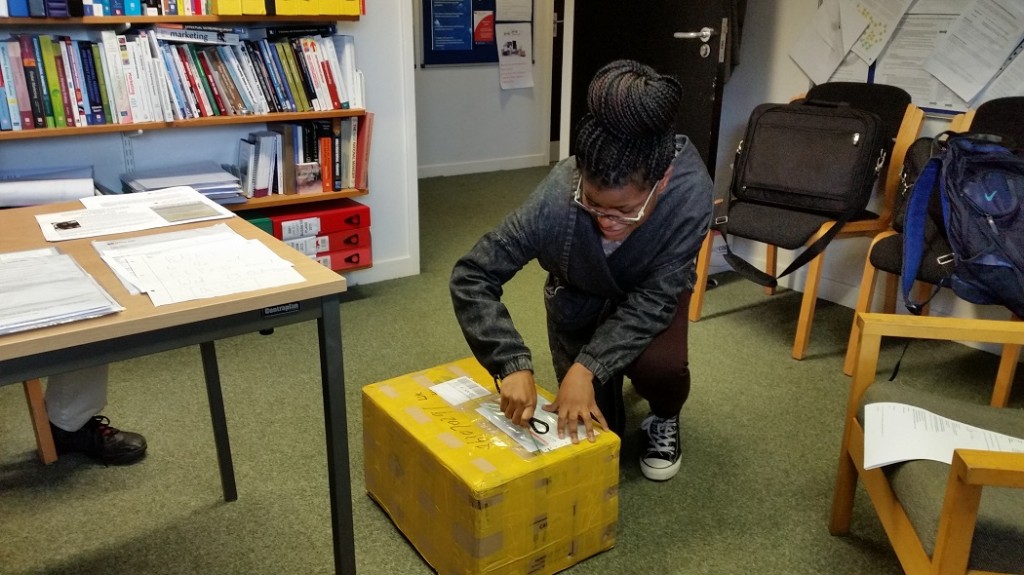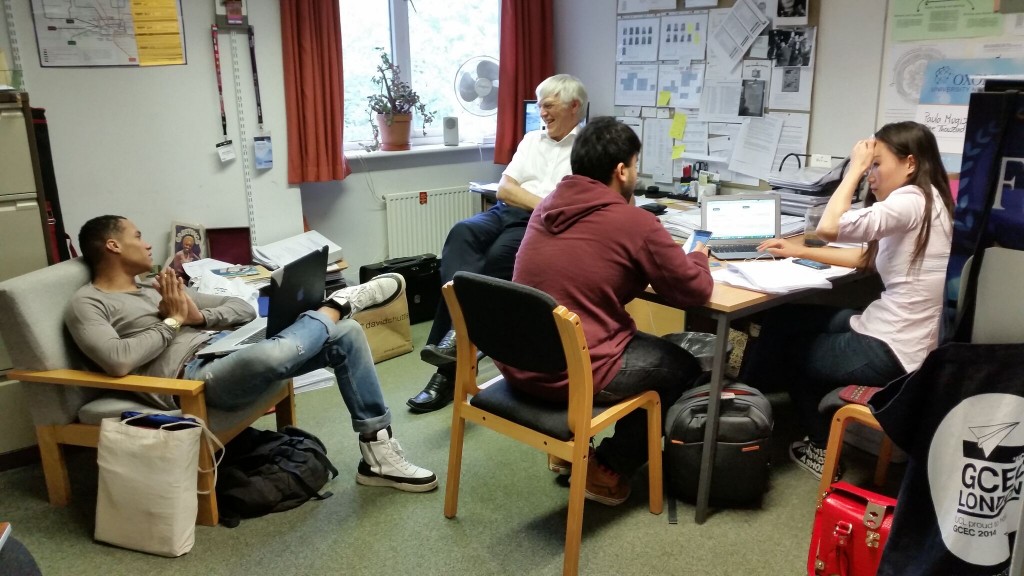In the spotlight:
Name: Nigel Adams
Location: University of Buckingham, UK
Occupation: Programme Director, Entrepreneurship
You are an influential individual within the enterprise education space. What does ‘enterprise education’ mean to you?
As we defined in our world-leading BSc Business Enterprise (BBE) undergraduate Venture Creation Programme, it means enabling my students to start achieving their own personal and professional goals by:
- Obtaining a good honours degree.
- Developing entrepreneurial self-efficacy – or, in other words, a “can do” mindset.
- Cultivating an ability to “think on their feet”.
- Giving them the skills to be flexible and able to adapt in a fast changing business environment.
Why do you think enterprise education is important?
It is important because it provides students with the opportunity to experience the reality of business and startups through the practical application of knowledge. Researchers such as Williams-Middleton (2013) and Morris et al (2011) have found that those creating a new venture often have little experience to fall back on in order to prepare themselves to be entrepreneurs. This is especially true for the young looking to create their first venture. Within the supported, stable, and family environment of our small university, students on the BBE programme are able to explore their entrepreneurial capabilities and the actions associated with the role.
How did you first become involved with enterprise education?
I was running my own international consultancy company, helping businesses to establish outposts in Central and Eastern Europe after the fall of the Berlin Wall. I was also a visiting lecturer in International Marketing and other business subjects at the University of Buckingham, and was asked to run the then very new BBE programme. It was felt that a “Pracademic” was needed to successfully handle the young entrepreneurs on the course.
What innovative teaching methods and practices do you use to introduce enterprise education to your students?
I run the world’s first undergraduate Venture Creation Programme. My students must run their own business as an integral part of their honours degree, and they must pitch to “Buckingham Angels” for up to £5000 seed-corn capital within four months of starting the BBE programme. If they have not been awarded funding by the end of their third (summer) term, they cannot continue.

A University of Buckingham BBE student unpacks her products.
How has enterprise education changed over the years, and how does it benefit students today?
Many more UK universities are teaching entrepreneurship and enterprise, but only a few are running Venture Creation Programmes. I still find that I have many students who have tried other universities’ enterprise courses, but found that they just talk about entrepreneurship; they don’t enable students to do it!
Even though not all universities teach experiential entrepreneurship education, at least they are teaching the subject. As a result, they are opening students’ eyes to the opportunities offered to them if they start their own businesses, rather than depending on someone else for employment.
Can enterprise be included at all stages of education, and within every subject? If yes, how? If no, why not?
Not only can it be included, it must be included. Unfortunately, England is the only European nation that does not have a government policy to include enterprise and entrepreneurship throughout the whole of the education system, from primary to higher education. This is despite many reports (e.g. by Lord Young) laying out how it could be done and the reasons why it is essential if England is to prosper in the future. Brexit makes this even more important.
How do you evaluate and measure the success of enterprise education generally, and your own teaching innovations specifically?
I see it happening in front of me every day as my students change – and I also measure it! I have started a longitudinal research project with the aim of verifying that we continue to achieve the objectives (as outlined in question one) we set for the BBE programme.
I tell all my BBE students that they will be “different people” when they finish the programme, and most of them do change. This can be seen in the reflective thoughts they present in their final business and personal review reports. Another example is the statement by a Northern Irish student after one year on the programme, when I asked him if he had changed. He said, “Yes, I don’t have a comfort zone anymore!”

Nigel Adams teaches a class of BBE students: the entrepreneurs of tomorrow.
Your original teaching methods are heralded within the sector. What would you say to any institutions or academics who have still not included enterprise education within their curriculum?
They need to understand that the world has changed and students – especially those studying business, creative subjects such as media, computing, or software – are more likely to work for small and medium size businesses, create their own business, or be self-employed. They therefore need to develop an entrepreneurial or “can do” mind-set. Employment in large companies will no longer be the norm and so continuing the old approach to higher education will not enable their students to succeed in this new world.
There’s an age-old debate about whether entrepreneurs are born or made. Can you weigh into this?
It is not worth bothering about! No one will agree on this and I have more important things to do, such as helping my students and graduates to succeed.
For students who don’t want to be entrepreneurs, what other benefits does enterprise education provide?
Our type of Venture Creation Programme enables students to immediately test the business theories they have learned during their enterprise education programme. They not only learn theory, but also they verify or modify the theories through practice.
None of my BBE student are unemployed after graduation, as even if they don’t want to start their own business they have the knowledge, skills and experience wanted by employers.
Where do you hope to see enterprise education in five years’ time?
I would like to see more VCP type programmes offered by universities, but I think it is unlikely to happen as, unlike the University of Buckingham (which is independent and gets no government money), most UK universities are “risk averse” and so do not have the willingness needed to start programmes like our BSc Business Enterprise (BBE).
I think that there could be more of a chance to “spread the word” and develop more students and graduates with an entrepreneurial mindset if universities, colleges and schools start to introduce Dr Martin Lackeus’ Value Creation Learning.
What does a typical day look like in the world of Nigel Adams?
There is no such thing as a “typical” day for me, running the world’s first undergraduate Venture Creation Programme. My office at the University of Buckingham is more like a student learning environment than a university office; everything happens in it! I have a comfortable chair that I call the “light bulb chair” as when my students sit in it they often say, “Ah, I see what you mean!”.

Students find inspiration in Nigel Adams’ “light bulb chair”.
Anyone in and around the university who is interested in starting their own business usually ends up in my office talking about it and getting help and advice.
And finally, Nigel, tell us: if you were an animal, what would you be and why?
A wily old bear, because my wife who has known me for more than 45 years suggested it!





Leave a Reply